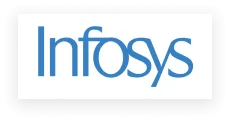30+
Years of Excellence
30,000+
Students Trained Every Month
99.1%
On-Time Batch
300+
Certified Trainers
5,000+
Courses to Choose From
Trusted by
To ensure the privacy of our clients, we use pseudonyms
Juma Makame
Tanzania
The trainer was a very skilled person and knowledgable. His teaching skills and dedication to towards making the concept understandable to the students is commendable.
Show More
VMware Tanzu Kubernetes Grid: Install, Configure, Manage [V2.5]
Leon Zbinden
Switzerland
Yes, but Nitesh helped me flawlessly overcome all the challenges that I faced in this course.
Show More
AZ-801T00: Configuring Windows Server Hybrid Advanced Services
Dev Chatterjee
India
It was great that the mentor knew the material and was quite enthusiastic about it as well. Definitely recommended.
Show More
Open-source Generative AI for Developers
Laila AlMansoori
United Arab Emirates
Excellent trainer with great communication skills. The way topics were broken down and explained really helped in grasping the material effectively. It was a great learning experience.
Show More
ITIL® 4 Foundation
Lachlan Hughes
Australia
I have liked all sessions and Trainer is processual trainer and in further I want some training on other technology definetly i will contact .
Show More
Autodesk Advance Steel
Thabo Maseko
South Africa
this has been a very insightul training for me. I came in with very high expectation and am very delighted that Konig manage to exceed all. My trainer especially was amazing his teaching style enhance my learning greatly and i amazed at how much knowledge i have gain with in short period of time .i believe he deserve commendation for hid great job done.
Show More
Automation in a Day
Fahad Al-Balawi
Saudi Arabia
The trainer has a lot of experience on the subject and always ready to respond any question related the subject or outside the subject. Nevertheless to motivate the trainer is always good to recognize him by providing a promotion within its areas of responsibility or any award that Koenig solutions has on the program. I want to say thanks to him for the time spend during the training which we have learned a lot on the material covered and also material outside the plan which is important on our daily activity within our organization specially in the practice lab that is a very important key for me to perform my job.
Show More
CompTIA Cloud+ CV0-004
Sibongile Nkosi
South Africa
Rating for training is 5. Client is happy with quick response and assistance.
Show More
Entry Certificate in Business Analysis™ (ECBA™)
Arjun Patel
India
trainer is an extremely effective instructor. He`s one of the few friends I made during the course of this training. He`s very skilled and has a vast knowledge concerning VMware products and platforms.
Show More
ISO/IEC 27001 Lead Auditor
















